Who is Uber's new boss Dara Khosrowshahi?
Global firm's CEO is a high-flying Iranian-American with a PR crisis to fix and a predecessor who's still involved

A free daily email with the biggest news stories of the day – and the best features from TheWeek.com
You are now subscribed
Your newsletter sign-up was successful
Uber softens tone to woo Chinese authorities
08 September
Uber is often accused of being confrontational, even "pugnacious".
The ride-hailing company has expanded aggressively in cities around the world, subsidising cheap fares in order to gain a foothold in new markets and offering incentives to attract thousands of drivers. Uber has been dismissive of the widespread protests it has sparked, openly challenging regulators and fighting legal battles in a number of jurisdictions.
The Week
Escape your echo chamber. Get the facts behind the news, plus analysis from multiple perspectives.

Sign up for The Week's Free Newsletters
From our morning news briefing to a weekly Good News Newsletter, get the best of The Week delivered directly to your inbox.
From our morning news briefing to a weekly Good News Newsletter, get the best of The Week delivered directly to your inbox.
But in China, a key growth market for the future, its tone appears to have changed, says the Financial Times. In a speech on Tuesday, Uber's chief executive Travis Kalanick spoke of dropping talk of "disruption" and instead focusing on "themes close the heart of officialdom: jobs, more jobs, and an enthusiasm for following the rules".
Fresh from a fundraising initiative that saw its Chinese affiliate secure another $1.2bn to fund a push into no fewer than 100 Chinese cities over the coming year, Kalanick said that Uber was creating 100,000 new jobs every month in China at a time when there are widespread fears the economy could be slowing down.
As in other countries, Uber has faced problems in China. Its offices in Hong Kong were raided last month, which Tech in Asia notes followed raids earlier this year on the mainland in Guangzhou and Chengdu. Uber's private car-hailing service has also, along with those of rivals, been informally "declared illegal in Shenzhen".
Following private meetings, it is thought that to operate in one of the country's biggest cities it will be forced to "properly license… drivers as commercial taxi employees and register each driver with local transit authorities, or face heavy fines". Again, this follows a similar ban in Beijing that initially targeted the services of Uber's main rival in the country, Didi Kuaidi, as well as more explicit bans aimed at Uber in a number of European cities.
A free daily email with the biggest news stories of the day – and the best features from TheWeek.com
But the FT reckons car-hailing apps remain a legal "grey area" and that there are expectations of new "national regulations" later this year that could "either formally legalise the expanding industry or strangle it". Uber is hoping its charm offensive might just tip the balance in its favour.
Uber: London cabbies fight back against ride-share platform
2 September
London's cabbies are staging a fightback against the ride-sharing platform Uber by signing up to a rival smartphone 'app' that offers discounted fixed price fare journeys across the capital.
The Financial Times reports that Gett, an Israeli start-up backed by Russia-born billionaire Len Blavatnik which has operations in Israel, Russia, and the US, says it has signed up 6,000 of London's 22,500 black cab drivers to its app. The new cut-prices are 30 per cent below the metered fare for any journey above six miles.
The black cab hailing app marks a major expansion of set fares for traditional cabbies following the rollout in April of fixed price airport transfers using the rival service Hailo. Gett itself has run limited trials in central London.
Contrary to popular belief, black cabs are not tied to the metered rate. Transport for London told the FT this was simply the maximum that could be charged when taking into account the amount needed to cover the costs of running a cab and obtaining The Knowledge.
The fares through Gett will in most cases not be as low as Uber's – the company welcomed the move, but claimed its demand-based service would make it 25-40 per cent cheaper – but Steve McNamara, general secretary of the Licensed Taxi Drivers Association, said it would allow black cabs's "Rolls Royce experience" to be offered at "an affordable price".
While Uber will be watching the launch, it will be more concerned about its ongoing legal case in California, where a judge has granted 'class action' status to a lawsuit that could force the ride-sharing platform to offer full employment terms to the 160,000 drivers in the state.
According to the Financial Times, the onus will now be on the company to "disprove an employment relationship". If it fails to do so, it would have to offer full employment terms such as holiday and sick benefit, which one analyst claimed would increase costs by as much as 40 per cent. The case could set a precedent that would threaten its model elsewhere.
Uber welcomed the fact the judge denied some of the class-action claims and said it will "most likely appeal" as drivers "use Uber on their own terms, and there is no typical driver – the key question at issue".
Uber drivers give London cab numbers a lift
26 August
Uber drivers in London will soon outnumber the city's official cabbies, as the ride-hailing service prepares to repeat a feat it has already accomplished in New York.
The Daily Telegraph says newly published Department for Transport figures show that since 2013 the number of private hire cars in the capital has risen by more than 26 per cent, to nearly 63,000. In the two years previously, the number had fallen by two per cent, following a slight rise in the preceding two years of three per cent.
The recent surge comes despite the number of minicab companies falling by five per cent, to 3,000.
Uber, which arrived in London in 2012, claims to have 15,000 drivers already on the city's streets, and it expects that number to rise to 42,000 by March next year. This would be close to double the number of black cab Hackney Carriage cars – according to the data, that figure has fallen slightly since Uber's arrival and now stands at 22,500.
Uber has launched in seven other UK cities, including Manchester, Leeds and Newcastle, and is expanding around the world. It offers significant incentives to drivers – in the UK it pays £150 for anyone who takes 20 trips and refers a new recruit – and often significantly undercuts rivals. Traditional taxis complain that they face tougher regulation than Uber, and that this results in higher costs.
But it has not all been plain sailing for the company, which is battling in lawsuits all over the world. In a recent blow to its ambitions in China, a key growth market, the company's Hong Kong office was raided and seven drivers were arrested over allegations that it fails to comply with regulations.
Writing in the South China Morning Post, Robert Boxwell of consultancy Opera Advisors said a retaliatory petition circulated through its app and which garnered 50,000 virtual signatures could undermine its attempts to win over Chinese authorities. "It's hard to see mainland authorities buying Uber China's sweet talk while the company throws bombs at local laws it doesn't like elsewhere. The Chinese know propaganda when they see it".
Uber 'hired sex offenders and a murderer' - lawsuit
24 August
"What do registered sex offenders, a kidnapper, identity thieves and a convicted murderer have in common?" asks CNN Money. They "all passed Uber's background checks in California".
The latest controversy involving the ride-hailing service Uber came to light when Los Angeles and San Francisco's attorneys general filed an update to a lawsuit filed last yeat, alleging 25 "instances where Uber's background checks failed to turn up felonies, misdemeanor charges and citations in its drivers' pasts".
The claim acknowledges that Uber's background checks, which do not use federal and state databases and go back only seven years, comply with the law, but alleges that the cases show its customer safety claims are "false and misleading".
It's just the latest court action for the company in California, where it is also appealing against a fine of $7.3m for for failing to comply with regulations on the reporting of safety and accessibility data. In another legal battle, it is fighting against a claim that it should treat its drivers as employees rather than freelancers, in a case that could undermine its entire business model.
Outside California, Uber is locked in regulatory wrangles around the world. Its app has been banned in several countries after protests that the company has an unfair advantage over licensed taxis and minicabs, which must comply with much more stringent regulations. Cab drivers have organised protests in London, but British authorities have so far declined to prosecute the company.
Uber is also facing criticism over the 'surge' pricing it operates at times of high demand, which resulted in fares tripling during the recent Tube strike in London. CNET says New York's mayor Bill de Blasio is reviewing two legislative proposals to outlaw or cap the practice.
But despite its legal troubles, Uber continues to expand rapidly. A presentation for Chinese investors, seen by Reuters, suggests it will increase global revenues from around $2.5bn to $11bn this year and that it could seek a stockmarket flotation as soon as 2017. It is in particular focusing on key emerging markets such as China and India, where it recently received an investment from a fund run by the country's largest company, Tata Group.
Uber hits back at 'shock, horror' response to leaked losses
07 August
Uber has been making big losses that reach into hundreds of millions of dollars a year, according to leaked accounts published this week. The company's reaction: 'so what?'.
According to documents leaked by Gawker, Uber lost more than $56m in 2013 and the deficit ballooned to more than $160m in the first half of 2014 alone. It could be much worse still: Bloomberg claimed in June that documents being used to sell its latest $1bn fundraising revealed Uber is making annual losses in the region of $470m.
The company issued a statement which tacitly confirmed the veracity of the figures, but derided the interest shown. In comments quoted by the BBC it said: "Shock, horror, Uber makes a loss. This is hardly news, and old news at that. It's a case of business 101: you raise money, you invest money, you grow (hopefully), you make a profit and that generates a return for investors."
Uber has certainly been raising money – $5bn at the last count. And it has been investing, including its latest $1bn bet to boost business in India. Growth is harder to prove. It claims to be doubling revenues year on year and has set a target of $2bn income for 2015, but Gawker claims the accounts suggest a much slower expansion.
Commentators agree that the documents lack sufficient context. The Sydney Morning Herald says it is not clear whether the losses truly represent the cost of investment, or whether it simply isn't "bringing in enough money on each ride to cover its costs". Technology website Re/code cites an analyst at RBC saying what "really matters" is profitability in 'mature' markets where it has operated for years, which is not shown.
More pressing for Uber is an ongoing series of legal battles it is facing around the world. Its lawyers were in court again in San Francisco yesterday arguing against a claim by three drivers over employment rights being made a class action that would affect all of its 160,000 drivers in California.
The case is a test of Uber's claim that its drivers are contractors and not employees, which is critical to its assertion that it is not a traditional taxi service. Reuters says defeat for the company could dramatically increase its costs and force it to reshape its business model.
Uber hits $50bn milestone quicker than Facebook
3 August
Uber has completed a $1bn fundraising which values the controversial ride-hailing company at $50bn, a threshold it has reached quicker even than social networking giant Facebook.
The Daily Telegraph notes the valuation was achieved within five years, whereas Facebook took seven to reach the same milestone. It also means the company has surpassed the likes of China's Xiaomi, a smartphone manufacturer, which was said to be worth $46bn in December.
The latest funds, which take the total raised by the company to $5bn, came in part from Microsoft, which gives an indication of the technological appeal of a company that pitches itself as a digital service linking consumers with independent taxi drivers through its UberX app, known in some countries as UberPOP.
According to the Wall Street Journal, another backer was India's Bennett Coleman & Co. Recent reports suggest that Uber is set to invest $1bn into the Indian market to expand to one million daily rides by next year and knock local ride-sharing rival Ola from top spot. This mirrors an aggressive strategy in China, where it has invested heavily to take on Alibaba-backed Didi Kuaidi.
All of this comes as the company fights protests and legal action across the world. It recently secured significant victories in the form of a stay of execution on a plan to cap its operations in New York and the European Court of Justice's decision to intervene in disputes between Uber and various national governments in the EU.
But in another setback it emerged last week Uber is facing fresh court action in the UK, after some of its drivers who belong to the GMB union launched a group action claiming that it does not provide them with the basic rights normally afforded to employees, according to ITV News.
The case mirrors another the company is fighting in California, and could have broader implications. Uber has consistently maintained its drivers are independent and self-employed, rather than employees of the company.
Uber denies 'phantom cars' appear on its in-app maps
29 July
Uber's app regularly displays "phantom cars" on its passenger maps that do not represent actual drivers, according to a report published on Vice.
A US employee appeared to confirm the claim – but a UK representative insisted that Uber maps showing the locations of the closest drivers display accurate, real-time data.
US researchers Alex Rosenblat and Luke Stark gathered information from Uber drivers in New York over six months, and found that many reported seeing phantom cars on maps of their own residential streets.
"Frequently, drivers log in to the passenger app to see where other drivers are so they don't sit unknowingly in the same one-mile stretch as the competition," writes Rosenblat.
One driver made a video showing the phantom cars as a warning to other drivers seeking an area away from the competition. The video depicts the app showing that certain areas are crowded with other Uber drivers, when in fact there are none.
Rather than a bug in the system, some people are speculating that it might be a deliberate business decision. A passenger opening the app might be less inclined to use it if they do not see any cars in their immediate vicinity,
, say the researchers.
When a driver contacted the company about the quirk, an Uber Help staff member responded: "This is not a representation of the exact numbers of drivers or their location. This is more of a visual effect letting people know that partners are searching for fares… It would be better of you to think of this as a screen saver on a computer." They suggested that once a rider requests a trip there will be "actual information" about the driver's location showing up in the app.
According to Vice, Uber makes "no distinction, visually", between actual drivers and those included as a part of the app's "visual effect".
An spokesperson for Uber UK categorically denied that its car map does not use real-time data to accurately pinpoint nearby drivers. "It's real-time analytics and the cars you see on the app are the cars driving around London," the spokesperson told Wired.co.uk. "In the UK that's how it works and we're pretty sure it's the same everywhere."
Uber: New York shelves 'cap' plan after last-minute deal
23 July
Uber has narrowly avoided a formal limit to its services in one of its largest markets, New York City, after it agreed a last-minute deal with the mayor's office.
According to the Wall Street Journal, the deal will mean that proposals to cap Uber services in the city will be shelved in return for the company taking part in a study monitoring its impact on traffic congestion, which will be concluded by the end of November.
Uber has also agreed to discuss other issues, including disabled access to its vehicles and surcharges to contribute to the Metropolitan Transportation Authority.
The Journal says the deal came after Uber executives approached mayor Bill de Blasio, amid concerns that the city's council was about to vote for a limit to the number of cars it could operate. The plans could yet be revived at a later date.
The BBC says the deal is significantly less onerous than the proposed legislation, which would have capped Uber's growth at one per cent per year and demanded a year-long study to assess the impact of its expansion on traffic. As in cities on both sides of the Atlantic, including London, Uber's rise has been accompanied by protests in New York, with traffic congestion one of a number of issues that has provoked anger.
Last month London's black cab drivers blocked streets in the capital as part of a campaign calling on Uber to face tighter regulations.
Uber is currently battling a $7.3m fine in its home state of California, while in France two of its executives are due to stand trial in September amid allegations that it operated an illegal taxi service in Paris. The European Court of Justice is also considering a case which could confirm or overturn bans on the service in France, Germany and Spain.
Uber: European court to rule on taxi service
21 July
Angry taxi drivers across Europe will get a final ruling on whether controversial competitor service Uber should be allowed to operate under a looser regulatory regime – but probably not until the autumn of next year.
Reuters reports that a judge in Barcelona has referred a case brought by the city's main taxi operator against the company to the European Court of Justice. Among other things it will decide whether Uber should be considered a "mere transportation service" or, as the Silicon Valley firm has consistently claimed, a digital service.
Uber has provoked objections from taxi drivers on both sides of the Atlantic, but protests have been loudest on mainland Europe. Opponents argue that Uber provided taxis and should therefore be forced to comply with taxi regulations in order to level the playing field with established drivers.
According to the Financial Times, any findings by the continent's highest court that Uber is not, in fact, a taxi service, could have significant implications for a wave of bans on its operations and particularly its UberPOP ride-hailing app. It is currently subject to a ban in Spain, Germany, France and Milan in Italy.
At a press conference, Uber's head of public policy for Europe, Mark McGann, welcomed the referral and suggested he expected the European Union to take a more sympathetic view towards the company than individual governments who are facing widespread protests from angry taxi drivers, Tech Crunch reports.
McGann also said the case, which is likely to be protracted and is expected to take more than a year, should mean other legal actions are put on hold. "This legal proceeding cannot be separated from other cases," he said.
The comments reflect an ongoing view at Uber that it is best served taking up its fight at European level. This was given a further boost last week when the European Commission confirmed it was investigating its complaint over the ban on the service in Germany.
Uber and two of its executives are due to stand trial in France in September over allegations that it has been operating an illegal service after it was banned in the country.
Elsewhere the service is facing a $7.3m fine and a ban in its home state of California (see below). Business Insider notes Uber is immersed in an escalating war of words with New York mayor Bill de Blasio, which followed a call for the service to be capped in the city and has seen the company request a live debate to challenge official complaints.
Uber faces $7.3m fine and California ban
17 July
Uber could be fined $7.3m and suspended from operating in California over its failure to give regulators enough information about its service and operations.
Karen V Clopton, a judge at the California Public Utilities Commission – the regulator that allows Uber to operate in the state – recommended the penalty, arguing that the increasingly beleaguered company had not filed all the reports required by state laws.
She ruled that Uber's months-long refusal to provide crucial data was in violation of the 2013 legislation that authorised ride-hailing firms to operate in the state, the Los Angeles Times reports. The requested information includes details of the number of requests for rides from people with wheelchairs and how many such rides were completed.
The global taxi-hailing giant, whose headquarters are in San Francisco, said it would appeal. In a prepared statement, a spokeswoman called the decision "deeply disappointing". The appeals process, which could take several months, will decide whether the fine and suspension are enforced.
Uber has been hit with a series of threats from regulators, drivers and taxi unions in recent months. If the firm is suspended in its own backyard, it would be a symbolic and demoralising blow as it attempts to deal with pushback from taxi operators in many of the 300+ cities it operates in across six continents.
In the UK this week, Conservative MP Charles Walker said that London would have to choose between backing its traditional black cabs or Uber, but could not have both plying for trade alongside each other.
"Walker said while cab drivers had to pass the Knowledge and undergo background and financial checks, technology start-up Uber was brazenly ignoring the rules and flooding the capital with mini-cab drivers," the Daily Telegraph reports. "Walker said if Uber was preferred there should be a genuine free for all, releasing cab drivers from the current regulations on themselves and allowing them to put 'any old piece of rubbish on the road'."
Meanwhile, a legal bid to force Uber to treat drivers as employees rather than freelancers could massively inflate the company's costs (see next page). If drivers were redefined as employees, the company could be forced to offer a range of perks including health insurance and reimbursements for fuel and other expenses.
And in a separate case, Uber has reached a settlement with the family of a six-year-old girl who died after being hit by a driver offering rides to its customers.
The family of Sofia Liu began legal action after the accident, which took place in San Francisco on new year's eve 2013. Although the driver was not carrying passengers at the time, the driver was logged into the Uber app and had said he was available for hire, Reuters reports.
In a statement, Uber said: "The Lius suffered a terrible tragedy and our hearts go out to them. While we cannot ease their pain, we do hope that this settlement helps the family move forward."
The terms of the settlement will remain confidential at the request of the family.
Uber drivers: staff or freelancers?
[[{"type":"media","view_mode":"content_original","fid":"83249","attributes":{"class":"media-image"}}]]
-
 ‘Those rights don’t exist to protect criminals’
‘Those rights don’t exist to protect criminals’Instant Opinion Opinion, comment and editorials of the day
-
 Key Bangladesh election returns old guard to power
Key Bangladesh election returns old guard to powerSpeed Read The Bangladesh Nationalist Party claimed a decisive victory
-
 Judge blocks Hegseth from punishing Kelly over video
Judge blocks Hegseth from punishing Kelly over videoSpeed Read Defense Secretary Pete Hegseth pushed for the senator to be demoted over a video in which he reminds military officials they should refuse illegal orders
-
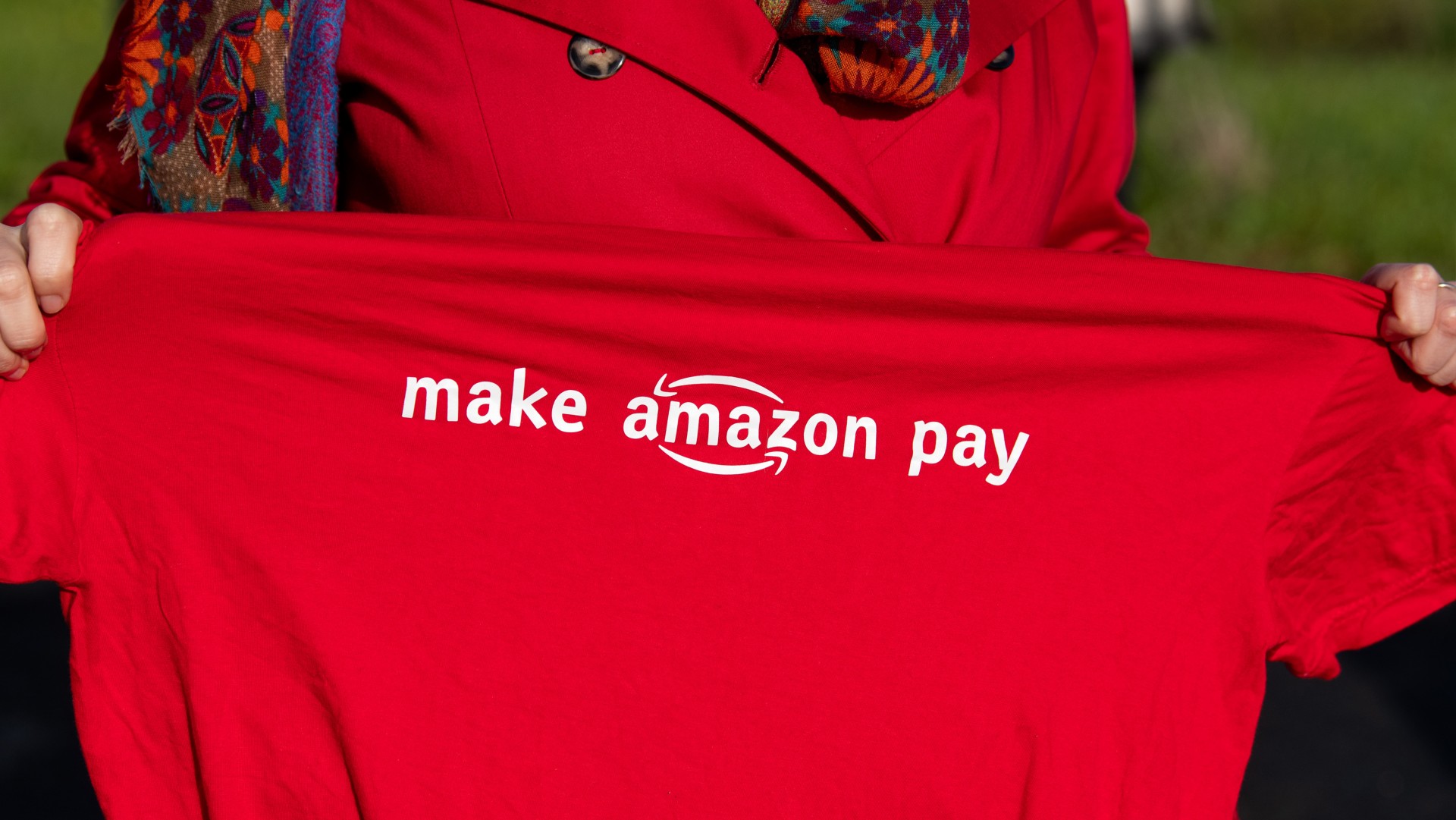 How Amazon’s first UK strike could be a sign of things to come
How Amazon’s first UK strike could be a sign of things to comefeature Big Tech is facing increasing pressure from unions as cost-of-living crisis fuels nationwide unrest
-
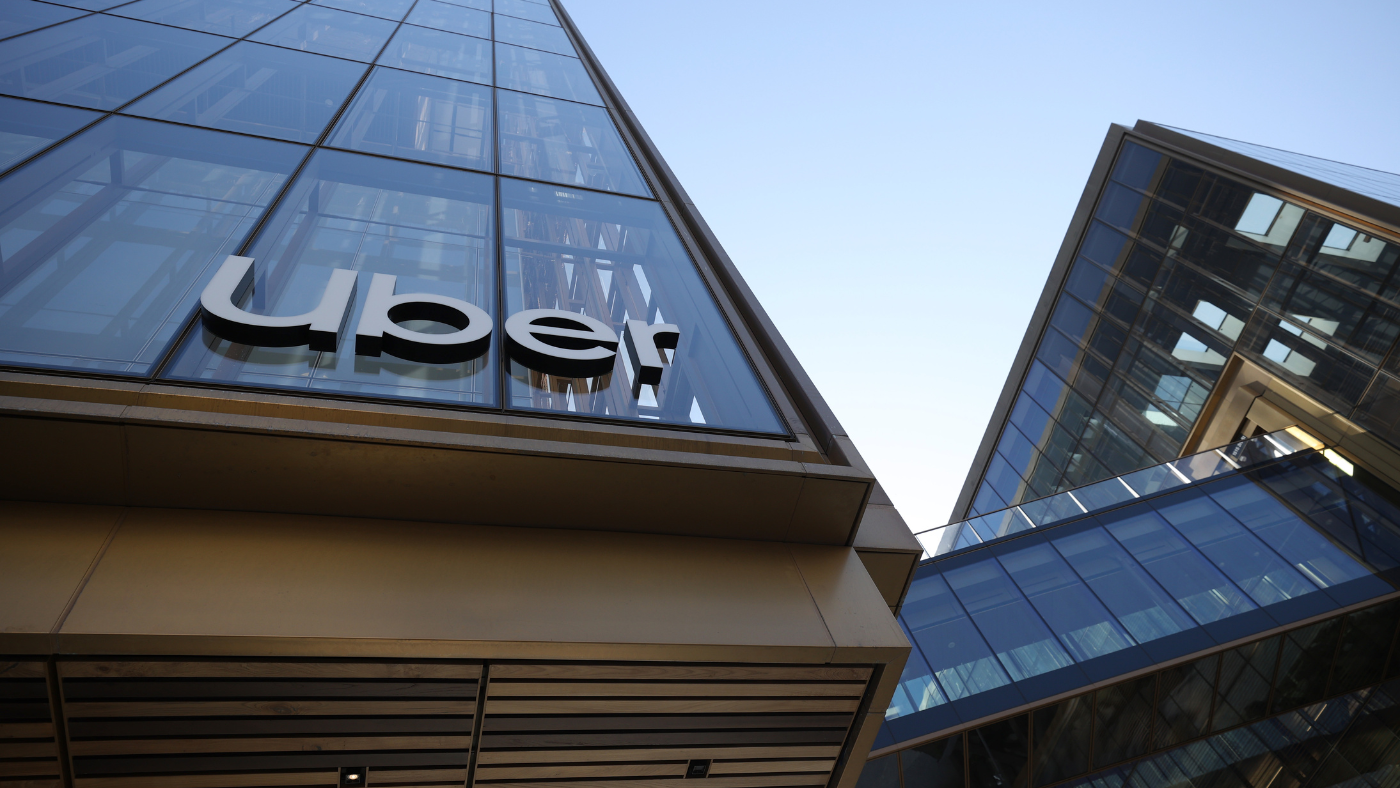 Uber files: what ‘unprecedented leak’ revealed
Uber files: what ‘unprecedented leak’ revealedSpeed Read Investigation exposes extent of government lobbying by Silicon Valley start-up between 2013 and 2017
-
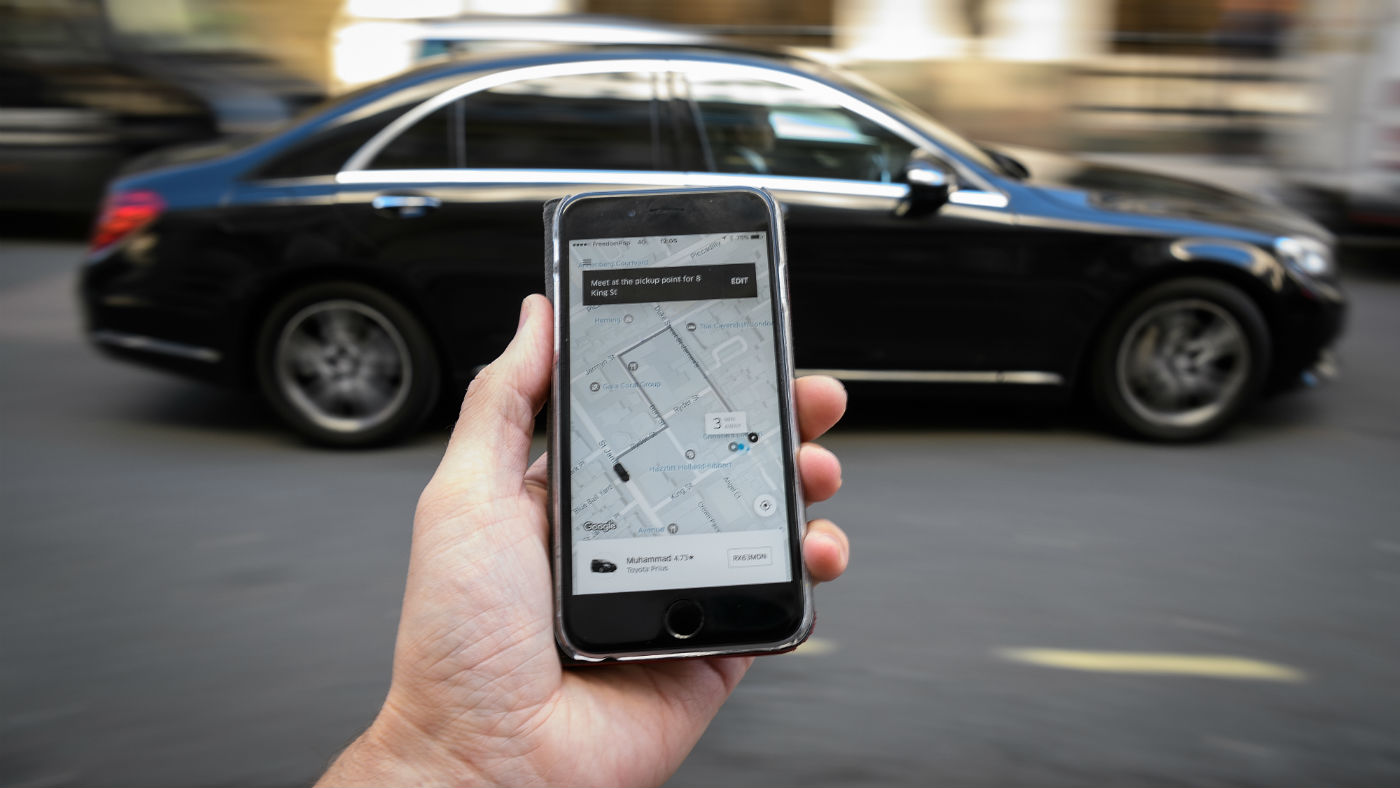 Uber vehicle fleet to be fully electric by 2040
Uber vehicle fleet to be fully electric by 2040Speed Read Ride-hailing company is setting 2030 target for UK in new plan to tackle climate crisis
-
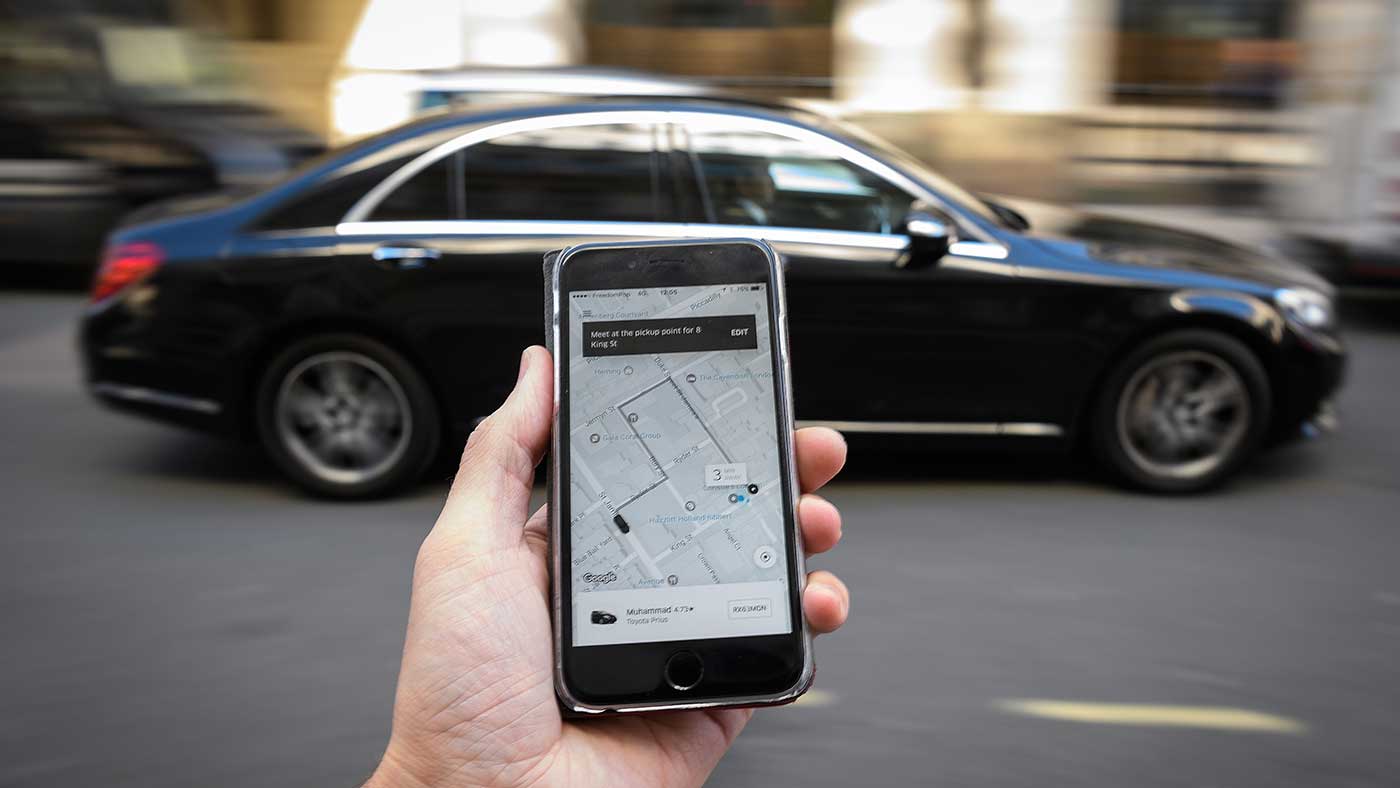 Uber’s licence renewed for two months in London
Uber’s licence renewed for two months in LondonSpeed Read Ride-hailing app lost its bid to reinstate its full operating licence in the capital
-
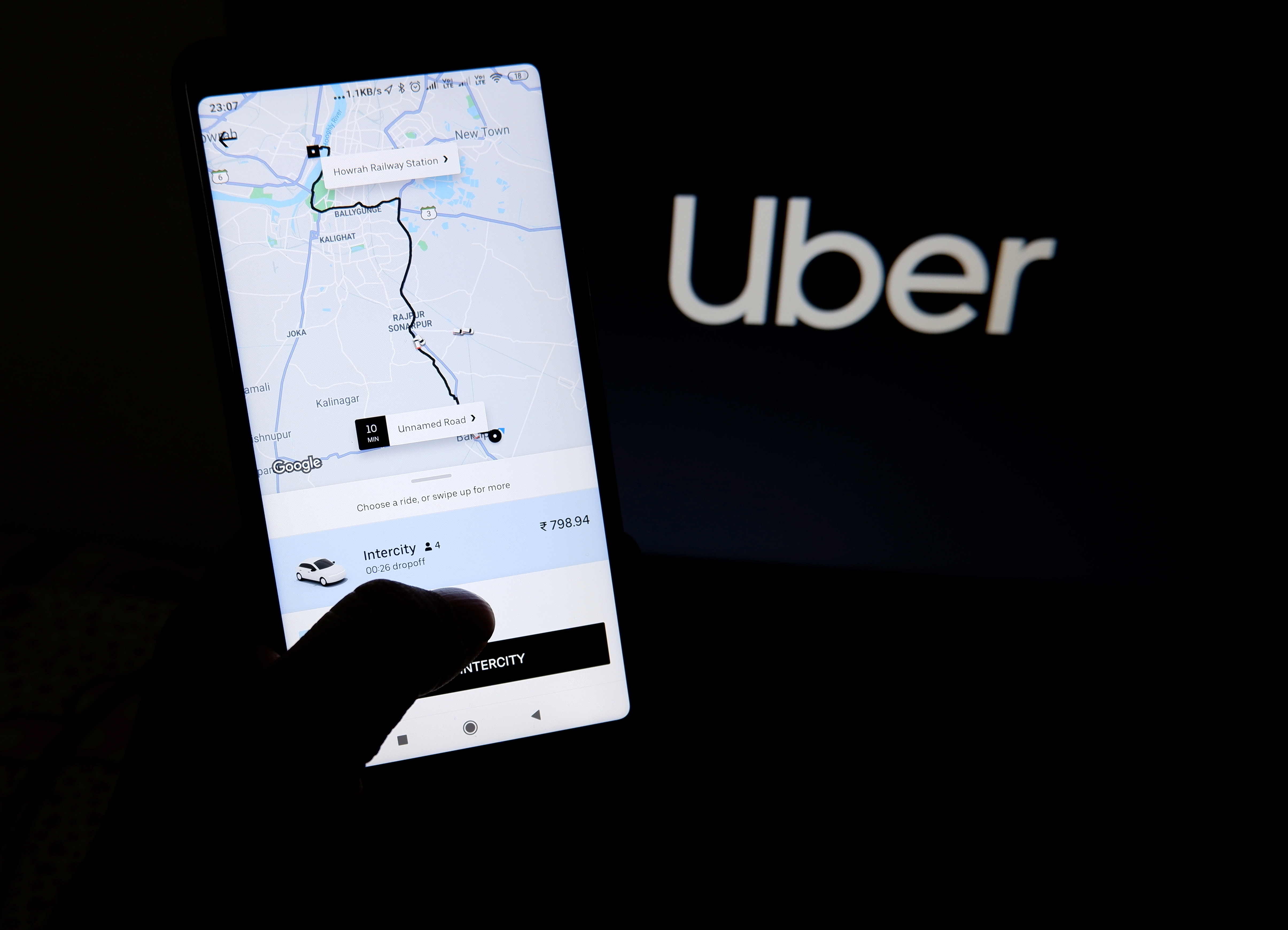 Uber reports $5.2 billion loss in Q2
Uber reports $5.2 billion loss in Q2In Depth The ride-hailing giant also revealed its slowest revenue growth ever
-
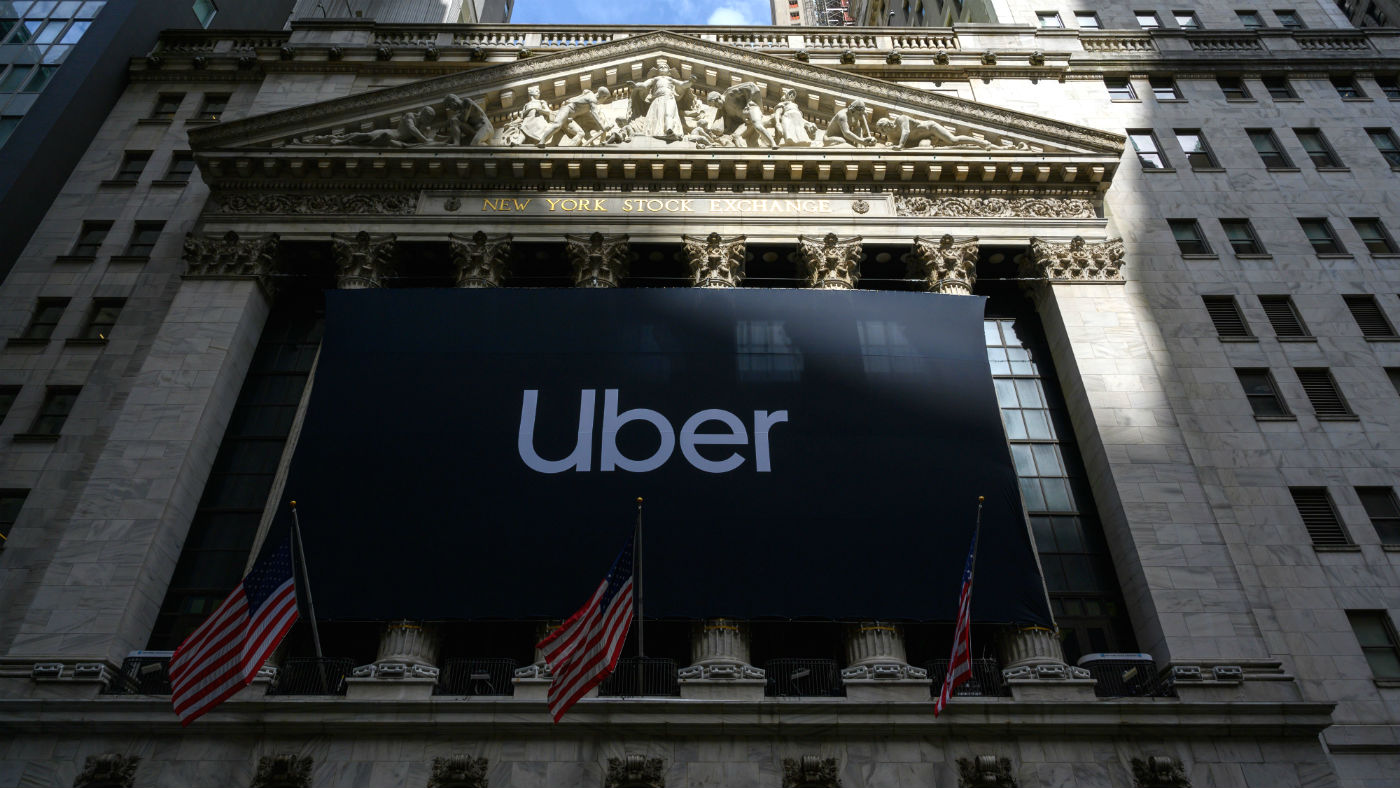 Are we headed for dotcom bubble 2.0?
Are we headed for dotcom bubble 2.0?In Depth Flotations of loss-making firms hit 2000 levels amid warning signs bubble could be about to burst
-
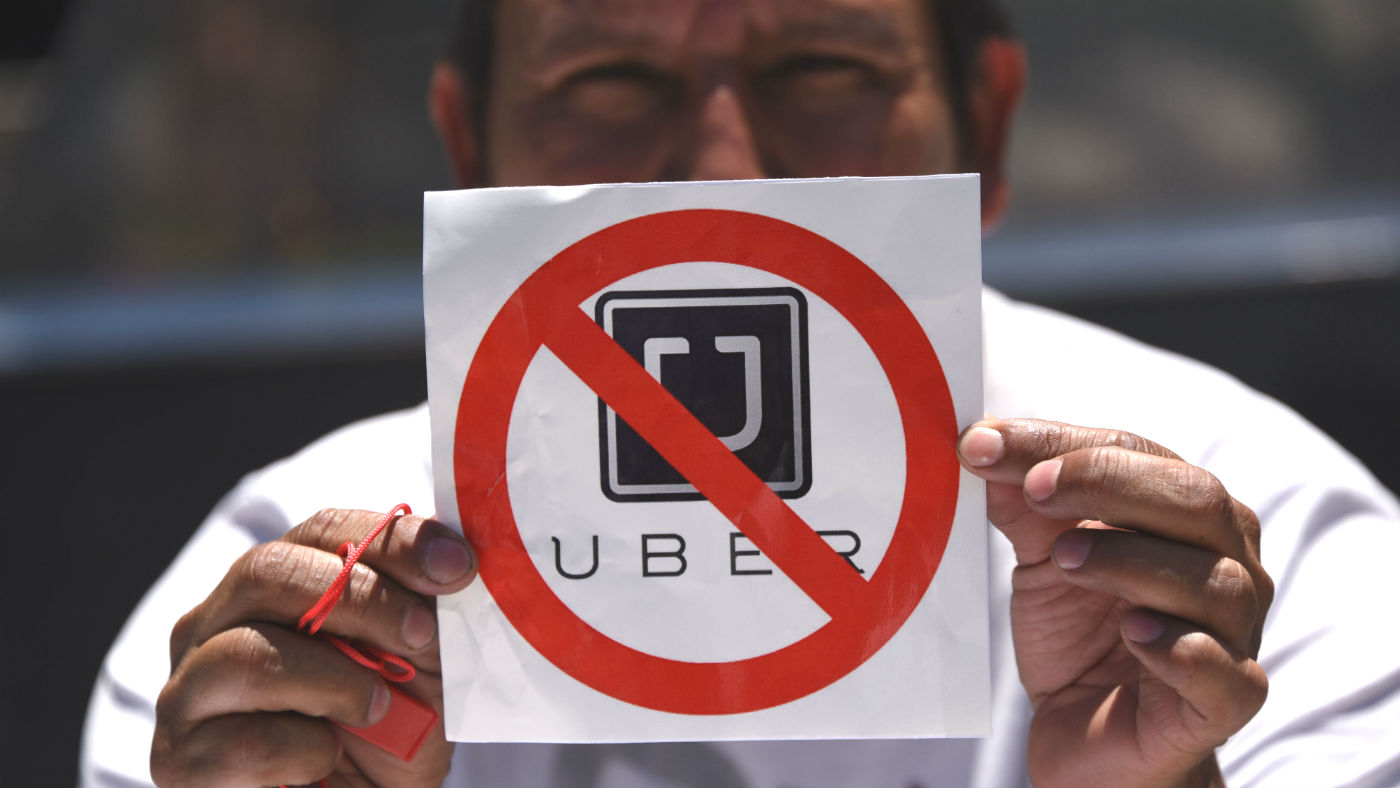 Uber drivers stage global strike ahead of IPO
Uber drivers stage global strike ahead of IPOSpeed Read Walk-out timed to coincide with Uber’s much-anticipated $100bn stock listing on Friday
-
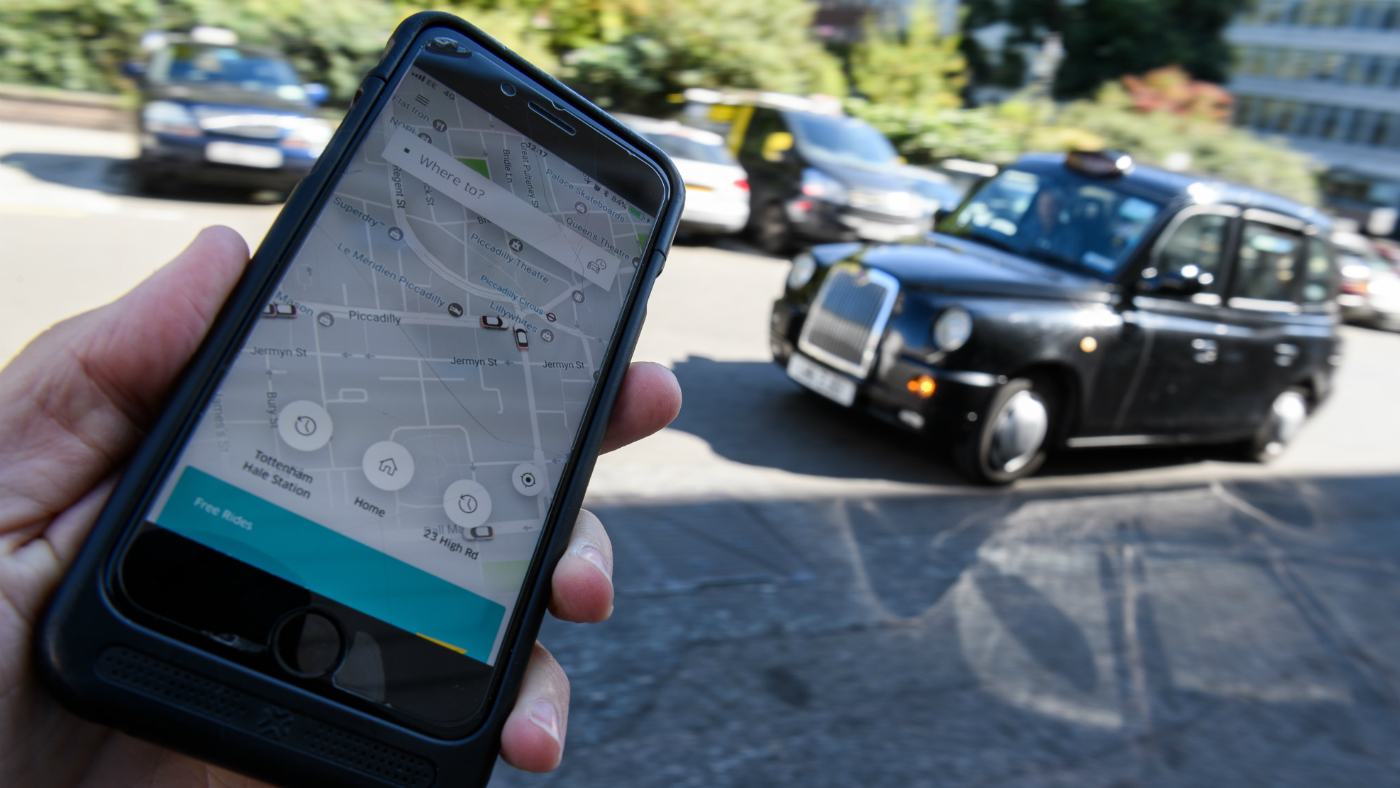 Why Uber is in court again
Why Uber is in court againSpeed Read Ride-hailing platform fighting to restore London licence